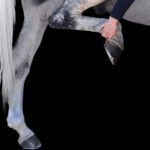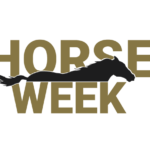September 4, 2002 — The IRS audit guide for revenue agents is an internal government document not available to the public. The IRS issues tax audit guides for many different categories of taxpayer business. The guide pertaining to the livestock and horse industry tells agents that “the volatility of the livestock industry makes it one of the most dynamic of any industry we will audit.” The guide advises IRS agents that “as in every business, the means for under-reporting income is as varied as those who choose to undertake such ventures. The most successful rancher may fail to disclose all income because of the accompanying income tax benefits. Farmers having a very good year with a sudden turnaround just before filing time may be dealing with a cash flow crunch.”
If you are audited in connection with your horse or other farming activity your auditor will be looking for the following red flag situations:
1. Sales of horses through atypical sources.
2. Bartering that may account for some sales; swapping of equipment or services for breeding stock.
3. Use of multiple bank accounts with reliance on the bank records for reporting purposes. The IRS thinks this lends itself to misreporting due to exclusion of some records. Revenue agents also watch for transfers to or from savings, money market, and investment accounts.
4. Personal expenses deducted as farm expenses. This is the most common form of misreporting among farmers and ranchers.
Farming is a lifestyle that takes tremendous dedication and focus. All aspects of a farmer’s life are centered on the animal and therefore nearly all aspects of a farmer’s life can be easily considered to be financially related to the business. Customarily revenue agents find personal expenses in insurance, gasoline, interest, taxes, utilities, and repairs itemized along with other ordinary and necessary farming expenses.
The audit guide advises IRS agents that the livestock industry is dynamic, and that various elements in the economy may dramatically tilt a taxpayer’s activity toward profit or loss depending on a number of factors. The main factors are markets. Changes in supply and demand for the particular animals can run the prices up or down. An oversupply of animals can push prices down. The weather impacts on profits as well, with drought, flood, heat spells and blizzards that can result in feed cost increases, reduced availability of grazing pasture, or outright death to animals through heat exposure, drowning, or isolation with subsequent starvation.
Health considerations can affect profits. For instance, reaction to England’s “mad cow disease” hit the cattle market quickly and hard for a short period of time. Diseases and illnesses can affect long range efforts to rebuild markets.
The audit guide recognizes that if undesirable market conditions begin to appear, this may trigger the need to sell breeding stock and then later acquire fresh stock from further breeding or direct purchases.
Although most Americans have an aversion to eating horse meat, the horse meat industry is now rivaling the beef and pork industries in the amounts of fresh meat shipped abroad. In l994, meat from l09,353 horses was shipped overseas. Horse meat is also used in some pet foods. Horses are covered under the Federal Meat Inspection Act and thus must be slaughtered under federal or state inspection. In Sweden horse meat outsells lamb and mutton combined. It is commonly consumed in Spain, Italy, Switzerland, Germany, Austria and the Netherlands, but it is most popular in Belgium and France.
Unlike the general livestock industry, horses are not usually sold in quantities. Individual sales are the norm, and factors related to subjective characteristics of the horse greatly affect pricing. A common transaction, under IRC section l23l, is the transfer of an interest percentage in an animal in exchange for training or other services. This is considered a sale or exchange which results in the recognition of gain or loss for the fair market value of the interest transferred compared to the basis of the animal.
More people in the start-up phase of the horse business are being audited this year than I ever recall happening in the past. If you are audited, it is helpful if you can show that you are either making a profit in the activity or that you are in the middle of a profitable year, or at least that your losses are declining. It is usually prudent to have an experienced taxpayer representative attend the audit on your behalf. The main consideration in any audit concerning the horse industry or other farming activity is whether the taxpayer has an honest intention of engaging in the activity with a view towards making a profit, rather than as a hobby. This is shown by objective as well as subjective evidence. Many of my clients have been successful in withstanding IRS scrutiny because they have made it a point to get professional legal guidance early on in their start-up phase.
[John Alan Cohan is a lawyer who has served the horse industry since 1981. He serves clients in all 50 states, and can be reached for legal consultation at (310) 557-9900 or via e-mail at johnalancohan@aol.com.]





